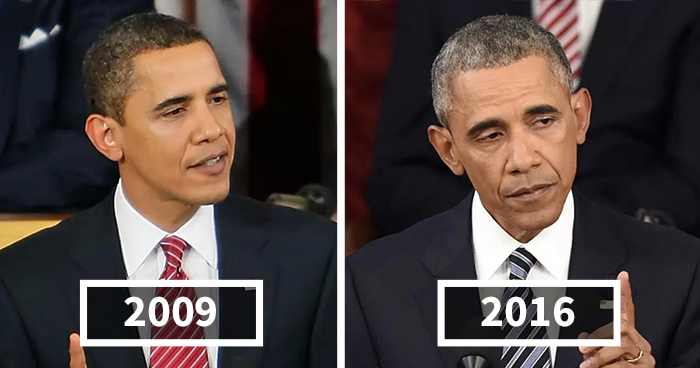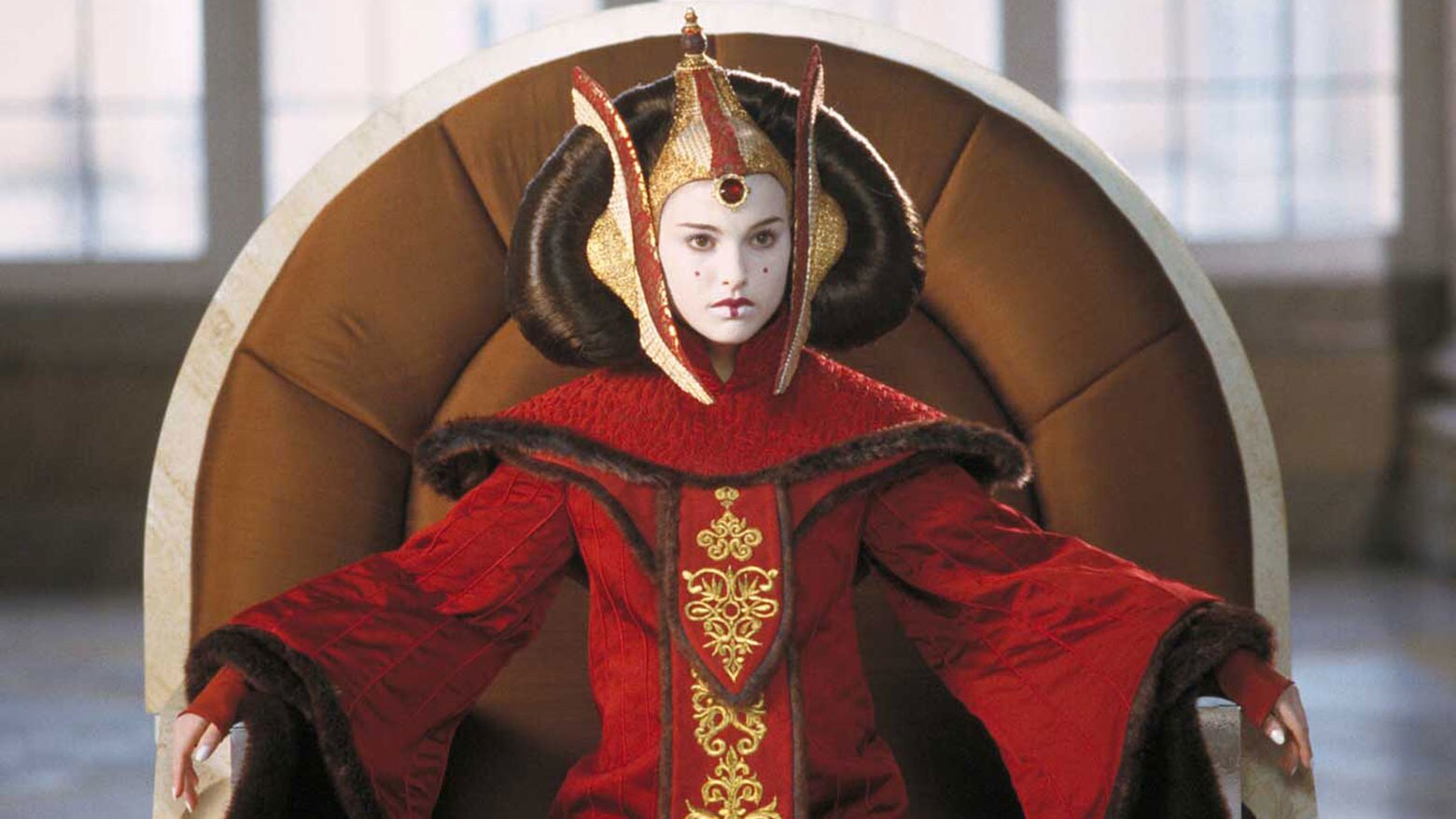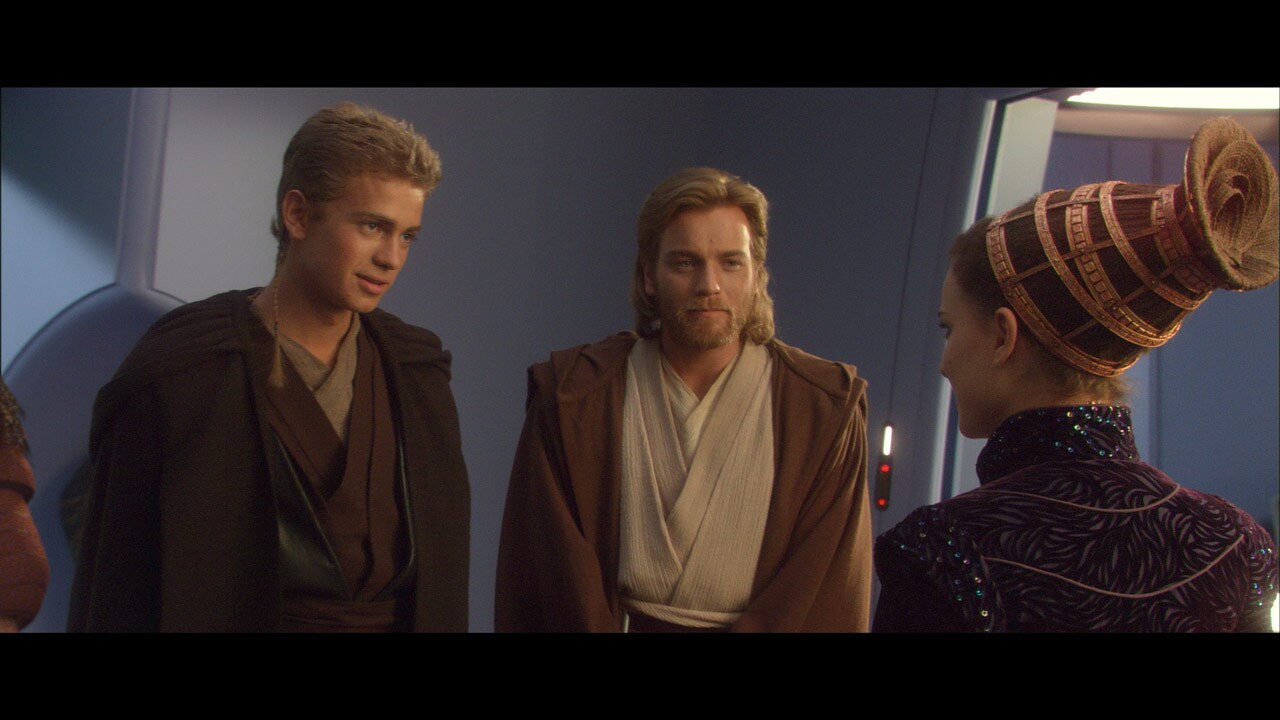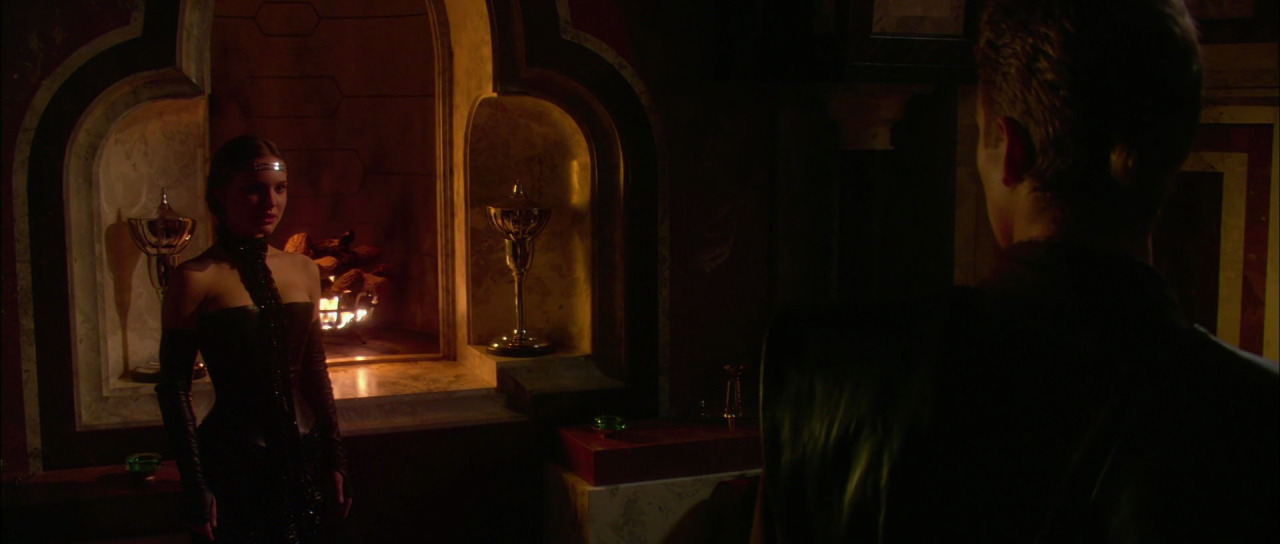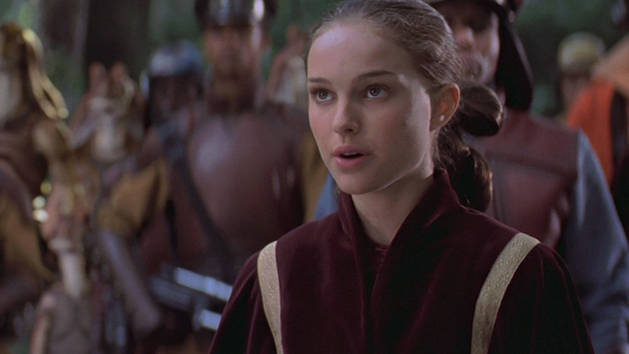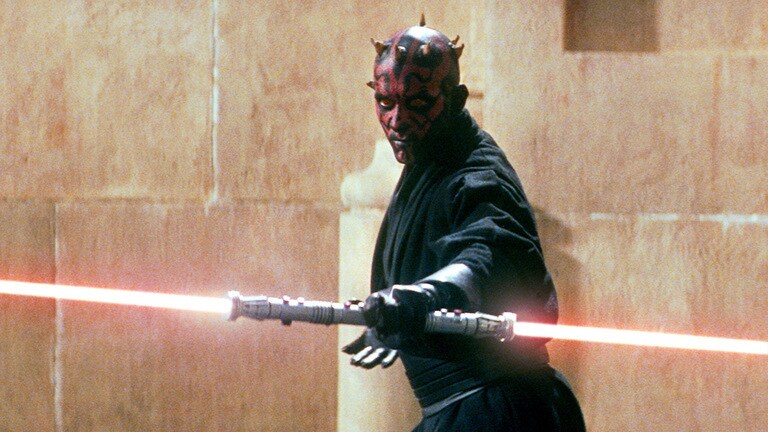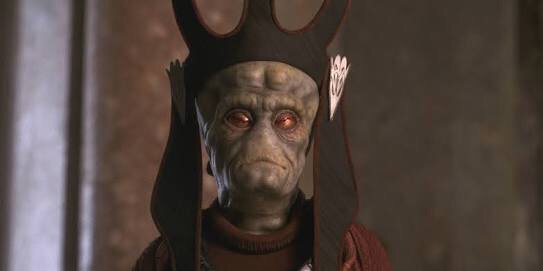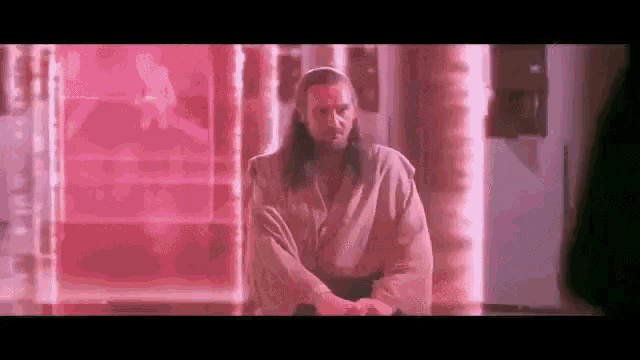Caveat: I reference The Clone Wars twice in this episode. I don't do this because it's essential viewing, but if you're not really watching the prequels (or if it's been awhile) you may find yourself missing two important pieces of information.
1) Anakin and Padme's marriage does not go well. Anakin and Padme's dialogue throughout this movie is filled with the pain of a troubled relationship. Some may accidentally miss the inference.
2) Yoda had a life-changing experience that he refuses to tell Anakin about. He reveals his encounter with the Force with Obi-Wan at the end of the episode, but Anakin catches on to the fact that Yoda's holding back something and says as much. Since the information is revealed out of order it can be a bit confusing to put together.
Is this a rather frequent instance of a flaw in the prequels or is it Star Wars doing what it has always done and requiring you to do more than watch the movie while perusing your cell phone? A good case could be made for both thoughts. I tend towards the latter. It's not on the movie to spoon-feed you the plot. However, mileage may vary.
This is it. The beginning of the end for the Jedi, the Republic, and what masqueraded as peace. Anakin is a hypocrite, wanting to save troopers when he's got innocent blood on his hands. Obi-Wan, unaware of what his former apprentice has turned into, has finally settled into a more comfortable relationship with Anakin. This isn't something that's readily apparent without watching Attack of the Clones and The Revenge of the Sith back to back, mostly because it's all about the nonverbals. I was struck by how differently Hayden Christensen and Ewan McGregor moved around each other, which resolves the bad blood between them in AoC quite well. It's subtle, but powerful. There's a confidence in each other, now that they don't have to compete.
I love the fight between Anakin, Obi-Wan, and Dooku, because the whole direction thing just completely opens this fight up. From Obi-Wan saying "Sith are our speciality", Dooku descending in an act of arrogance, and Anakin all of a sudden opening his anger up like the can of whoop-ass that it is, to Dooku being on his knees and realizing he's been set up, it's just fantastic. No one with the exception of Luke has ever stood down a charging Anakin; Dooku, whose style definitely favors finesse over force when all things are equal (as they finally are at the end of this fight) is least equipped to stand up to Anakin's belligerence.
I don't really have to explain Anakin killing Dooku. That's a story beat a long time coming. All the rage of losing his hand to Dooku and being shown up combined with his horrible trust in Palpatine clash and someone's head rolls on account of it.
We find out that Padme is pregnant. In my opinion this is one of the best scenes of the whole prequel trilogy and is everything that a scene in general should try to be. You just don't get better than this scene, where Padme is scared and Anakin is strong and happy and... I really wanted this scene to last... but even here there's trouble. "Things will be different, I promise", is not what you expect to hear when someone has just come home from a long military tour. Looks like the marriage isn't going well, is it?
 |
| Nope, it ain't. |
Anakin's now starting to have nightmares of Padme dying in childbirth. It's strange that in Episode III they show the image of Padme in pain, when it doesn't show up for Anakin's mother in Episode II. In fact, come to think of it, most mystical experiences in the Force are not shown, but are alluded to. Actually experiencing the Force is usually an ethereal experience, filled with otherness so incredible that Lucas doesn't show it on the screen, we're just left to realize that's what happened. So I don't think these are true visions. Something's up.
It all comes to a head when the Council accepts Anakin's seat on the council, but do not make him a master. Anakin is right to be insulted, his mastery of the Force is probably greater than most sitting in those chairs, Yoda excepted. But it gets worse with Obi-Wan informing Anakin that he was only put on the Council so he could spy on his friend, Palpatine. Anakin's outrage is real and justified, regardless of how unhealthy the relationship is. After all the snubs that the Council have leveled at him for the last 14 years and they pull this?
Nope. Screw that. The Council's just ended themselves and don't even know it yet.
It's out of sequence, I know, but we're going to end this post on Yoda's conversation with Anakin. I'm including the conversation itself because, as Star Wars has progressed, it's gotten more subtle and some scenes really need more to unpack them properly.
There is a lot going on in this scene. It's telling that Anakin chooses Yoda and not Obi-Wan, who had previously flubbed up with the visions of Anakin's mother. He considers Yoda an authority in the Force and needs to understand what's going on. Anakin went to the one person he actually thinks may be his equal, the one who may be able to help him understand what it is he's feeling. And, at first, Yoda may actually be the one to do it!
YODA and ANAKIN sit in Yoda 's room, deep in thought.
YODA: Premonitions . . . premonitions . . . Hmmmm . . . these visions you have . . .
ANAKIN: They are of pain, suffering, death . . .
YODA: Yourself you speak of, or someone you know?
ANAKIN: Someone . . .
YODA: . . . close to you?
ANAKIN: Yes.
YODA: Careful you must be when sensing the future, Anakin. The fear of loss is a path to the dark side.
ANAKIN: I won't let these visions come true, Master Yoda.
Let's take a moment to go through where Yoda is at. I don't like to reference anything other than the movies, but it's important to do so here. While Lucas was careful to show the Jedi mostly through Anakin's point of view that does mean that we sometimes miss the implication of what was meant. What we find out from The Clone Wars is that, by this point, Yoda has met Qui-Gon and gone through the trials to gain immortality. It's a long and complicated procedure, involving meeting mythical beings in the Force and letting go of your inner darkness and doing some stuff that truly defies description, so if you have Netflix I really suggest you go and watch it. Suffice to say Yoda has been through a life-changing series of events and if he was worth his salt he would say this and it would all be over.
YODA: Death is a natural part of life. Rejoice for those around you who transform into the Force. Mourn them, do not. Miss them, do not. Attachment leads to jealousy. The shadow of greed, that is.
ANAKIN: What must I do, Master Yoda?
YODA: Train yourself to let go of everything you fear to lose.
It's entirely within Yoda's power to end Anakin's anxiety about death by assuring him that he has personally met Qui-Gon post-death and he can show him how to achieve this too, if only he be patient. But instead of relating to Anakin Yoda just basically tells him to shut up and get back in line. The fact that Yoda is not discussing what he discovered with the rest of the Jedi is ridiculous. And the thing is that, at the end of the movie, he does reveal his experiences to Obi-Wan and we realize what Yoda has done. I bring it up here merely so we can be on the same page as to how badly Yoda just dropped the ball.
And people tell me what a wise character Yoda is.
Appendix: I decided that I wanted to leave the post as it was but to add this note at the end. Throughout the entirety of the last scene we cover Yoda is from the left, which means that on some level he is in the right to say what he's saying. As much as it angers me on a personal level that Yoda withheld the information from Anakin the film, if I was to be consistent, says he was right to do what he did. The implication of the film is that Anakin, by refusing to be honest, is not worthy of the knowledge that Yoda holds. I'm generally on Anakin's side throughout the prequels, but here it becomes apparent that Anakin is already gone. Even with everything on the line he can't show his vulnerability to Yoda, who knows a lot more than he lets on.








